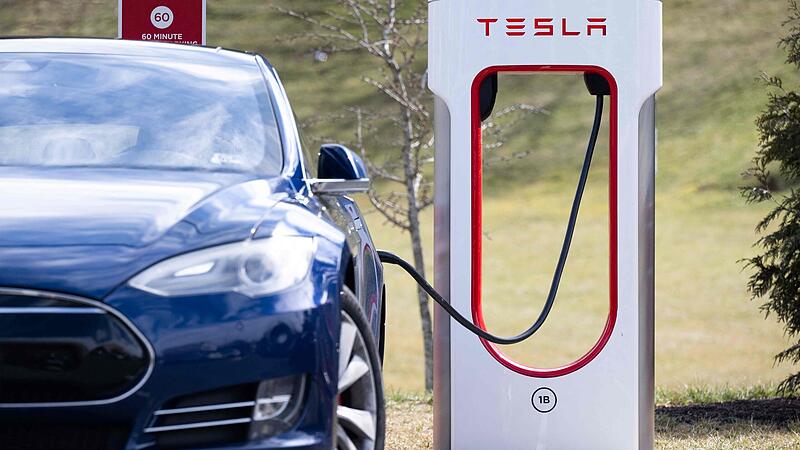Image: APA/AFP/SAUL LOEB
A first foretaste of this was recently provided by the loss-making Swedish provider Polestar, which the co-owner Volvo Cars cut off the money and which now has to rely on fresh funds from the Chinese majority shareholder Geely. Others – such as Sono Motors from Munich with its vision of a solar electric car – have already disappeared from the market completely.
This shows how difficult it is to raise enough money for the expensive development and production of an electric car. The fact that demand for electric cars is no longer increasing as much as in previous years could mean the end for many smaller companies.
- also read: “Bi-Wai-Di” – how a Chinese dream turns the car world upside down
Tesla has managed to grow from a start-up to a company with a valuation in the top of a trillion dollars thanks to cheap money, revolutionary technology and the eccentric personality of its boss Elon Musk. But now the technology is no longer as revolutionary as it was ten years ago, and newcomers also have to compete against the financially strong established car manufacturers. “It’s time for a shakeout,” said Andy Leyland, co-founder of supply chain expert SC Insights. Electric car start-ups now have to show how they want to become profitable and compete with the big providers and the Chinese.
Sono failed due to lack of money
According to its own calculations, Polestar alone needs another $1.3 billion before the company wants to generate profits from 2025. But things are likely to be difficult on the stock market: since their market launch in June 2022, the shares have lost 87 percent of their value. After all, the company has a strong owner in Geely who has agreed to contribute the necessary money. This could be more difficult for other electric car start-ups. Sono has already failed due to lack of money and had to stop its car project; An investor was recently found for the business with solar panels for buses and trucks.
- You might also be interested in: Six tips about electric cars
Other startups such as Rivian, Fisker, Arrival, Xpeng and Lucid are also struggling with the costs of ramping up production. Fisker, for example, has declared that it is open to a partner and has restructured its loans accordingly. According to Musk, Tesla was also in a “production hell” – but that was already in 2018, when money was still cheap, investors were few, competition was weak and demand for electric cars was rising sharply.
Investors’ patience is dwindling
But times have now changed and investors’ patience is dwindling. Musk’s warning that Tesla’s growth is likely to slow this year cost the company $80 billion in market value in one day. Since its peak in 2021, Tesla has lost more than 40 percent in value. The price war between Tesla and the Chinese BYD also plays a role and is causing problems for weaker players. Funders reward companies that keep their costs under control. After the announcement that Polestar would no longer give any money, Volvo shares shot up by 30 percent on Thursday, and Renault’s rejection of an IPO for its electric car division was also applauded.
And so what the auto industry saw a century ago could happen again with electric cars. When the internal combustion engine was invented, start-up fever broke out in Europe and the USA; numerous inventors wanted a piece of the pie and failed. Many of the once independent car manufacturers eventually merged into companies such as Volkswagen, General Motors and Stellantis.
more from economics




